Civil Liberties, Civil Rights, FBI Intrusion, Human Rights, Political Prisoner, Racist Police Violence, Right To Dissent, Surveillance, Torture, Truth to Power
Podcast: Play in new window | Download
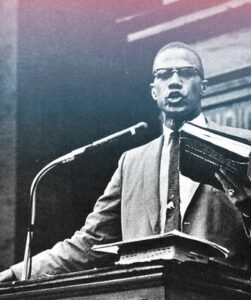
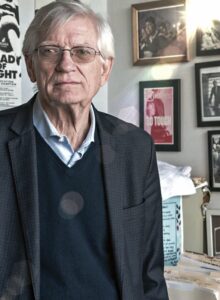
Malcolm X Shabazz et al. v. USA
A groundbreaking legal case seeks justice for the family of most iconic civil rights leaders, Malcolm X. In an unprecedented lawsuit filed by his daughters, the Shabazz family is challenging the U.S. government, the City of New York, and several high-ranking law enforcement agencies. At the heart of the case is the claim that state actors, including the FBI and NYPD, played an active role in the assassination of Malcolm X on February 22, 1965, and that this involvement has been systematically covered up for decades.
This suit, Malcolm X Shabazz et al. v. USA, not only seeks justice for the wrongful death of Malcolm X but aims to hold the government accountable for its complicity in the assassination. The case draws on newly uncovered evidence that links federal agencies to the events surrounding Malcolm X’s death, as well as the subsequent framing and wrongful conviction of two men who were exonerated in 2021.
The legal team behind this case includes civil rights attorneys Benjamin Crump and G. Flint Taylor, and if successful, their argument could rewrite the historical narrative surrounding one of America’s tragic and significant moments. At the core of this case is the question: How deep was the state’s involvement in silencing Malcolm X? Was the assassination part of a coordinated campaign by law enforcement agencies determined to prevent the rise of powerful Black leaders? The lawsuit raises profound questions about the government’s role in suppressing movements for racial justice and civil rights, both in the past and in the present.
Guest – Flint Taylor of the Peoples Law Office. Flint represented the family of Fred Hampton and revealed that the FBI and Chicago Police Department murdered him in 1969. Flint is an editor of the Police Misconduct Law Reporter and is author of The Torture Machine: Racism And Police Violence In Chicago.
—-
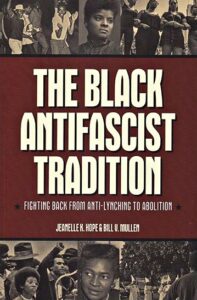
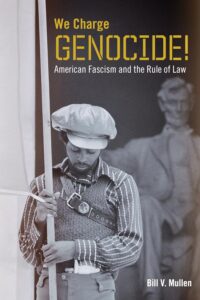
A History Of Anti-Black Racism
National chauvinism and racism are essential features of fascism. The practice of white racism in the United States during the Jim Crow era was something that Hitler’s party in Germany studied and emulated. This kind of anti-black racism went on in the United States from shortly after the Civil War up until the 1960s. It has never really gone away as the mass mobilizations of the Black Lives Matter movement has recently demonstrated. This Black resistance, this fight back, will be a central aspect of anti-fascist activity in the future.
Guest – Bill Mullen is professor emeritus of American studies at Purdue University and the co-founder of The Campus Anti-fascist Network. He’s also co-author of The Black Antifascist Tradition and his new book published last month We Charge Genocide: American Ashes and the Rule of Law.

——————————
Civil Liberties, Gaza, genocide, Prison Industry, Racist Police Violence, Targeting Muslims, U.S. Militarism, Violations of U.S. and International Law, War Resister
Podcast: Play in new window | Download

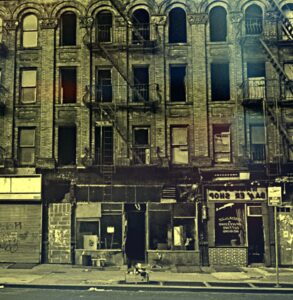
I Dare Say: A Gerald Horne Reader
Angela Davis once stated “radical simply means grasping things at the root.” This makes understanding possible. What are the roots of our present dilemma? Where did capitalism come from? And what accounts for its great success? Where did racism come from? When was it implanted? Why are alternatives to the capitalist Democratic and Republican parties so feeble?
What did Malcolm X really stand for and what did he try to accomplish before he was assassinated at age 39, the same age that his contemporary Martin Luther King was assassinated five years later? How does this contribute to the weakness of our movement?
This weakness can be traced back most immediately to the anti-Communist witchhunt of the 1940s and 1950s and the destruction of the left-wing; of our once powerful trade unions beginning in 1947.
The danger that Malcolm X. presented to the powers that be are best understood by his internationalism, his reaching out to leaders in Africa, his desire to go to the United Nations to mobilize against American racism.
Today’s political activists are drawn to the works of historians to appreciate where we are at, how we got here, and what to do next.
Guest – Gerald Horne has written about these profound events. His reader I Dare Say has just been published by OR books. Cornell West called Gerald Horne is “one of the great historians of our time.“ Horne approaches his study of history as a politically engaged scholar with an insightful and necessary partisan stance. He graduated from both the University of California law school and Columbia University where he got his PhD in history. Horne has been active as a leader of the National Conference of Black Lawyers and is the author of 40 books as far reaching as the origins of capitalism, racism, settler colonialism, boxing and jazz. He is currently a chaired professor of African-American history at the University of Houston.
—-


Attorney Michael Deutsch on Repression of the Pro-Palestinian Movement
Historically, when the people of our nation rise up in massive opposition to policies and actions undertaken by their government that are deemed essential to its foreign or domestic policies, various governmental agencies invariably begin the process of trying to shut down or seriously weaken the peoples’ movements against those policies and actions. That’s what happened in the 1960’s and early ‘70’s, during the movement against the U.S. war in Vietnam. In the ‘60’s when the movement for civil rights was so active in our nation. Or more recently in response to the movement on behalf of immigrants’ rights. And so it is not surprising that the pro-Palestinian movement in the United States, which in the wake of how Israel is conducting its war in Gaza, has exponentially increased in size and in public view, would immediately become the focus of renewed governmental, as well as private, repression in America. Colleges and universities shut down groups like Students for Justice in Palestine and Jewish Voice for Peace; college presidents were called to testify before Congress about what they were, or were not, doing to combat alleged increases in anti-Semitism on their campuses; the U.S. House of Representatives initiated, and continues, an investigation of the pro-Palestinian movement; private employers have withdrawn job offers to students and others who joined the anti-Israel protests; and authors and speakers deemed too supportive of the Palestinian cause continue to be disinvited or banned from speaking at public forums.
Secrets And Lies: The Persecution Of Muhammad Salah
Often, governmental efforts to intimidate or undermine these peace and social justice movements include actions that are not visible to the general public. Secret actions. Actions such as sending undercover agents into the targeted protest groups in order to disrupt the group. Electronic spying on the groups and group leaders escalates. And, as the case with the movement now protesting Israel’s actions in its war in Gaza, a war backed by the United States both politically and militarily, various U.S. policing agencies are now consulting with, visiting with, and working in concert with governmental agencies in Israel.
Guest – Michael Deutsch, a lawyer with the famed human and civil rights People’s Law Office in Chicago, Illinois. Michael has also served as the Legal Director for the Center for Constitutional Rights in New York City. In the course of his career, he has been a criminal defense lawyer for the rebelling prisoners at Attica, and later was a coordinator in the Attica civil lawsuit where, after two decades of litigation there was a settlement of 12 million dollars in damages. Mr. Deutsch has also represented Black Panther Party members, Puerto Rican Nationalist prisoners in the 1950’s, who won an unconditional sentence commutation from President Carter in 1979; and more recently Michael represented Rasmea Odeh, the Deputy Director of the Arab-American Action Network, a former Palestinian prisoner and torture survivor.

——————————————-
Civil Liberties, Civil Rights, Political Prisoner, Prison Industry, Racist Police Violence
Podcast: Play in new window | Download
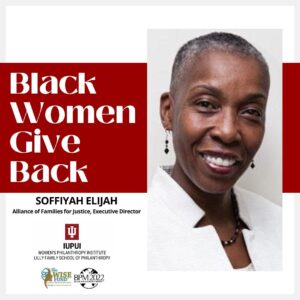

The Alliance of Families for Justice
The Alliance of Families for Justice (“AFJ”) was founded seven years ago by attorney Soffiyah Elijah. Its headquarters is in Harlem, a community heavily impacted by mass incarceration. AFJ also has satellite offices in Albany and Ithaca.
AFJ seeks to heal families and individuals who suffer from their own imprisonment or that of a loved one. It seeks moreover to organize and empower them to challenge and change the system of mass incarceration. AFJ’s legal support unit provides free legal representation to incarcerated people and their families. AFJ holds weekly community organizing meetings and family empowerment circles, and monthly healing circles for formerly incarcerated people. Its organizing and advocacy unit spearheads various campaigns including one to #Shutdown Attica and another to end felony disenfranchisement. AFJ’s Youth Empowerment Project has serviced over 400 NYC young people ages 16-24 in its 3yr tenure. All of AFJ’s services are free.
In New York State and most places nationwide incarcerated people lose their voting rights. This is both un-democratic and, because most incarcerated people are Black or Latinix, it is a racist policy and a vestige of Jim Crow laws that permeated New York and most states. The loss of voting rights remains a significant obstacle to criminal justice reform.
Guest – Attorney Soffiyah Elijah, knows intimately what happens to families whose loved ones are put in prison. She has been able through AFJ to support, motivate and educate these families to become advocates for civil rights and justice reform. Attorney Elijah has headed legal clinics at the City University of New York School of Law and has served as the Deputy Director of the Criminal Justice Institute at Harvard University, under Professor Charles Ogletree. She was the first woman and first Black Executive Director of the 170yr old Correctional Association of New York where she helped expose and bring to justice several Attica prison guards for brutally beating a man almost to death.
—-
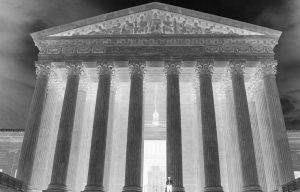
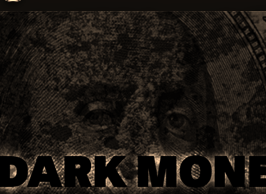
Dark Money And Conservative Courts
When Donald Trump became president in 2016, one of the most terrifying prospects was that he could signal a new era for the Supreme Court of the United States – where vacancies would be strategically filled to create one of the most conservative courts in nearly a century, which could roll back constitutional rights and liberties we’ve been taking for granted. Indeed, even though Donald Trump was not re-elected in 2020, the conservative 6-3 majority that exists, and the havoc they are wreaking, could last for decades. While I’m sure Donald Trump would like to take all the credit, the battle to buy Supreme Court influence and push votes to the right long precedes his tenure as president.
Guest – Andrew Perez, has devoted his life and career to exposing the money, influence and secret transactions made among the most powerful people in the world to control the United States laws, government and people. He is an investigative reporter and senior editor for The Lever, which was just awarded the 2023 Izzy Award for outstanding achievement in the independent media by Park Center for Independent Media at Ithaca College for its relentless work “exposing the corrupting influence of corporate power on government and both major parties.” In announcing the award, the Center for Independent Media highlighted Andrew’s work for exposing the largest known political donation in U.S. history — Chicago businessman Barre Seid’s $1.6 billion dark money transfer to conservative operative Leonard Leo who served as Donald Trump’s judicial advisor – and guess who Leonard Leo appears to ready to back now … Republican presidential candidate Ron DeSantis.

———————————-
Civil Liberties, Civil Rights, Human Rights, Racist Police Violence
Podcast: Play in new window | Download
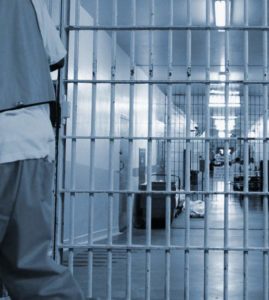
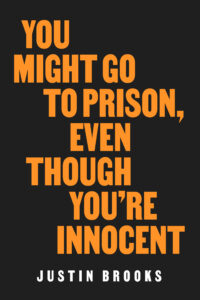
You Might Go to Prison, Even Though You’re Innocent
There is a common belief that if you’re arrested, you are probably guilty because “where there’s smoke, there’s fire.” People assume that only the guilty confess to crimes because why would an innocent person confess to a crime they didn’t commit? And when a person pleads guilty or is convicted by a jury, that’s the end of the matter, in the minds of most people.
In fact, many innocent people are arrested, especially people of color, due to racial profiling and other forms of discrimination by law enforcement. Implicit bias often infects the case as it moves through the criminal legal system – from the initial police stop, to interrogation, arrest, charging, trial and sentencing. This is particularly tragic when a person is charged with a capital crime for which the death penalty is imposed and that sentence is carried out.
However, it is estimated that 10,000 to 20,000 people are currently serving time in prison after being convicted of crimes they did not commit, largely due to prosecutorial misconduct and police misconduct. Unfortunately, even when exonerated, the psychological and physical damage done is so extensive that many people are never able to fully recover from the trauma. In addition, when the wrongful conviction is solely the result of prosecutorial misconduct, those convicted have no legal recourse to be compensated for the wrong done to them because of prosecutorial immunity.
Guest – Justin Brooks criminal defense attorney and law professor has spent decades working to free innocent people from prison. The Founding Director of the California Innocence Project, Brooks is the author of the provocative new book, “You Might Go to Prison, Even Though You’re Innocent.” In it, he discusses false identifications, junk science, lying snitches, and incompetent defense lawyers – which too often lead to the imprisonment of innocent people.
—-
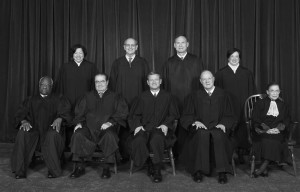

Expert Panel On Grutter v. Bollinger
Last October, Law and Disorder aired a segment exploring the possibility that the Supreme Court might be poised to overrule Grutter v. Bollinger and gut affirmative action. That’s the landmark 2003 case that held that the 14th Amendment allows public universities to consider race as a factor to assemble a diverse student body.
Around the time of our interview, the National Lawyers Guild New York City Chapter and the Society of American Law Teachers, or SALT, held an educational panel exploring the two affirmative action cases that the Supreme Court will decide by June or July. As many await the high court’s decision, we are pleased to present excerpts from this panel.
The speakers are Victor Goode, former Executive Director of the National Conference of Black Lawyers and Professor Emeritus at CUNY School of Law. Corinthia Carter is a board member of the NLG-NYC Chapter Foundation and president of the Legal Services Staff Association of the UAW. Rounding out the panel is law professor Vinay Harpalani from the New Mexico School of Law and a member of SALT’s board of governors. The panel was moderated by Olympia Duhart, co-president of SALT and a law professor at Nova Southeastern University College of Law.\
Hosted by Attorneys Heidi Boghosian, Marjorie Cohn and Julie Hurwitz

————————
Civil Liberties, Civil Rights, Human Rights, Racist Police Violence, Torture, Uncategorized, Violations of U.S. and International Law
Podcast: Play in new window | Download
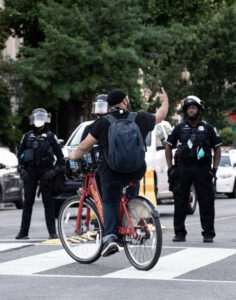
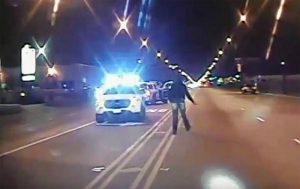
Ending Structural Police Violence And Abuse
On January 7, after an unlawful traffic stop, several police officers in the SCORPION unit of the Memphis Police Department beat, kicked, punched and tased Tyre Nichols, who posed no threat to the public or the officers. He died in the hospital 3 days later. SCORPION, which was disbanded following Nichols’s death, stands for Street Crimes Operation to Restore Peace in our Neighborhoods. In reality, SCORPION’s targets – as with similar such units around the country — were primarily Black men. Far from restoring peace, these officers escalated the violence and killed Nichols. The officers later lied about stopping him for reckless driving and the police chief admitted there was no legal basis for stopping Nichols.
One month later, in his State of the Union address, President Joe Biden introduced Nichols’s parents who were in the audience and he called for police reforms. We all know that racist police violence is nothing new. It has shown itself over and over throughout our history, and has led to calls for reform of the police, and abolition. But structural and systemic racism and police violence persist nevertheless.
In spite of the worldwide outrage at the public execution of George Floyd in 2020, and several superficial reforms, police killings continue to increase, not decrease.
Guest – Jonathan Moore, civil rights attorney in New York City who, since the late 1970’s, has specialized in police and governmental misconduct, employment discrimination, First Amendment advocacy, and international human rights. Jonathan represents the family of Eric Garner, who was killed in broad daylight in 2014 by the New York City police for allegedly selling loose cigarettes. He was also the lead attorney in the New York “stop and frisk” case in 2013 that led to the historic ruling that banned the practice as unconstitutional. And he represented the Exonerated Five (formerly known as the Central Park Five) in their successful wrongful conviction case against the City of New York.
—-
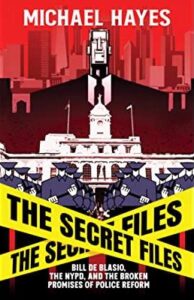
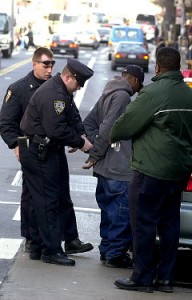
The Secret Files: Bill de Blasio, the NYPD, and the Broken Promises of Police Reform
The issue of police reform looms large across the nation, with daily reports and images of lethal police violence against Black and Brown persons striking a collective raw nerve. A new book by journalist Michael Hayes reads like both an investigative report and a gripping saga of the nation’s largest police department. Its protagonists are the New York City Police Department (NYPD), its powerful union, Black and Latino New Yorkers, and the Mayor. The book is “The Secret Files: Bill de Blasio, the NYPD, and the Broken Promises of Police Reform.”
Bill de Blasio, mayor from 2014 to 2021, focused his campaign on making the NYPD more accountable to the public. Previously, while serving on the City Council, he introduced legislation to expand the purview and clout of the watchdog agency, the Civilian Complaint Review Board. While in office, de Blasio tried to end the NYPD’s long-standing “stop and frisk” policy, among other pernicious practices. But from the beginning of his tenure, after two officers were fatally shot in Brooklyn in December 2014, the police department and its union doubled down in opposition to reform. One example was to effectively prevent public disclosure of internal investigation files or the identities of police officers known to be the subjects of those investigations.
Guest – Michael Hayes, in addition to his recently released book, Michael has long reported on the policies and practices of U.S. police departments and covered major criminal trials across the country.
Hosted by Attorneys Heidi Boghosian, Marjorie Cohn and Julie Hurwitz

—————————————
Civil Liberties, Civil Rights, Human Rights, Racist Police Violence
Podcast: Play in new window | Download
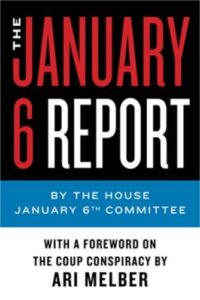
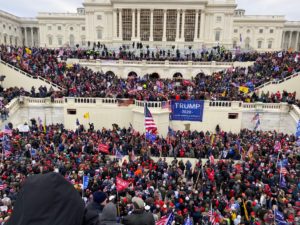
The January 6 Report
The January 6 Report” by the House January 6 Committee has just been published by Harpercollins. It is a page turner. Most strikingly, the report documents the multi-pronged attack that Trump plotted. The crucial point made by the January 6 Committee report is demonstrating the profound misconception to view the January 6 invasion of the Capitol as merely a group of Trump supporters gone wild. The plot was not limited to the January 6 violence at the Capitol.
Rather, as the report documents, January 6 was a culmination of months of plotting by Trump to overthrow a lawful election and stay in power. He came very close to accomplishing a coup d’état, a blow against the state. Democracy in the United States, however limited, would’ve ended.
The American constitution was written in Philadelphia in 1787. Benjamin Franklin was there. When they concluded Franklin famously said “we have a republic, if we can keep it.“ Can we keep it? Will Trump be indicted by the Department of Justice and convicted for the criminal activity he orchestrated in order to keep himself in power, after losing the election two years ago by seven million votes? If he is not indicted, what will be the impact on the future of democracy in the United States?
Guest – attorney Stephen Rohde who recently reviewed The January 6 Report with a forward by the author Ari Melber. Rohde’s review appeared in “ Truthdig” and in the LA Progressive“. Attorney Stephen Rohde is a constitutional scholar, past Chair of the ACLU Foundation of California, an author of books on the Constitution, who frequently reviews books for the Los Angeles Review of Books. And Mr. Rohde is a leader in the national campaign to free the imprisoned investigative journalist Julian Assange.
—-
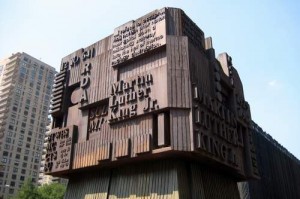
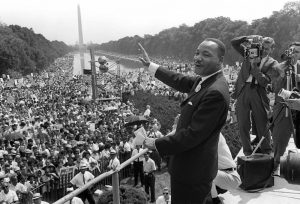
Martin Luther King Jr. : A Dream Realized
We take a look at where the long struggle to end racial injustice stands in the United States today. Oh, some progress has surely been made, but to say we’ve a very long way to go before Martin Luther King Jr.’s dream can be considered “realized” is both true and also a sad and gross understatement; a sad commentary on the role that white privilege and racial hatred continue to play in the United States, hundreds of years since our founding.
Guest – Attorney Sharon Kyle is the publisher and co-founder of the LA Progressive on-line newsletter and a former president of the Peoples College of Law, a law school in Los Angeles established by the National Lawyers Guild and other minority bar associations. Sharon Kyle is a member of the board of the ACLU Affiliate of Southern California and is its representative to the national board of the ACLU. Sharon Kyle is also an active member of the Los Angeles area Julian Assange Defense Committee; a member of the editorial board of the Black Commentator.com. Years before immersing herself in the law and social justice, Sharon Kyle was a member of several space flight teams at NASA’s Jet Propulsion Laboratory.

——————————-























